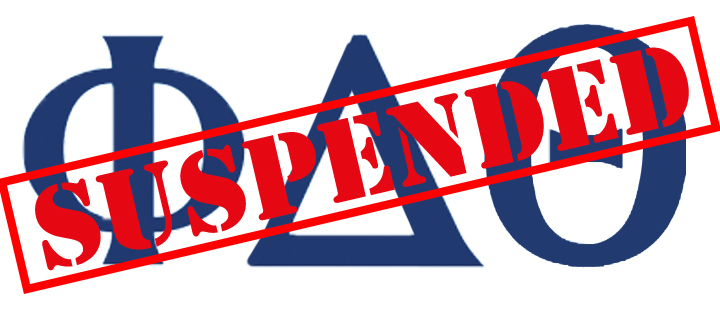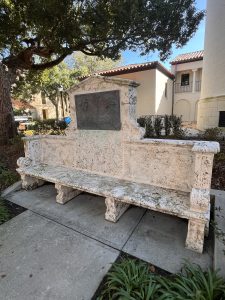For the third time in three years, Rollins fraternity Phi Delta Theta has been put on an interim administrative hold. The hold stems from an investigation after reports of Title IX and Community Standards & Responsibility (CSR) violations.
According to Meghan Harte Weyant, the dean of students and assistant vice president of student affairs, the investigation, which has been completed, was performed by a third party.
Harte Weyant said that investigations are always conducted by third parties when Title IX is involved. She did not specify who the third-party investigator was.
Harte Weyant was also unclear on which violations occurred in this case, but said that it stemmed from a series of indivudal violations within the fraternity. When asked if hazing and drug use was involved, she said that “those are usually things organizations are investigated for.”
According to the Code of Community Standards, some CSR violations include abuse (physical, mental, or verbal), vandalism, disruptive behavior, hazing, and sexual misconduct or harassment. `
As of this publication going to press, no information was given to The Sandspur about the results of the investigation.
At this time, according to Phi Delta Theta’s president, Nick Baker ’20, and the fraternity’s faculty advisor, Dr. Jana Matthews, the organization has also been withheld any information regarding the investigation.
An interim administrative hold, previously called a suspension, is put into place for three reasons as outlined by the Code of Community Standards: 1. To preserve the safety and well-being of members of the College community or preservation of College property; 2. To preserve the student’s own physical or emotional safety and well-being; and 3. If the student poses a threat of disruption or of interference with the operations of the College.
The Sandspur has been investigating the suspension for approximately five weeks. No one from the Office of Fraternity & Sorority Life (FSL) would answer questions about or meet to discuss the suspension.
Jazmine Rodriguez, director of FSL, said that their office has no involvement in the suspension process and declined to give further comment. However, Baker said that he met with Bronwyn Holder, assistant director of FSL, last week.
Baker also said that his organization has been kept in the dark during the entire suspension process and did not even know what events triggered the suspension.
“We were not given any information, we were just interrogated with unwarranted questions,” he said.
Baker said he was asked whether or not members of Phi Delta Theta had ever drugged someone, which he said was “completely untrue.” Baker also showed frustration in the timeline of the investigation; he felt that it has been unnecessarily prolonged.
Matthews said that the timeline of an investigation is not set, which can cause some issues for the organization depending on when it begins. For example, the current suspension began before any new members were initiated, which affects Phi Delta Theta’s retention rate and their involvement in campus activities.
Matthews also said that she is impartial to whatever decision the dean of students makes on the investigation: “I am here to advise the members, but if the results of the investigation show that they are guilty, then I support the sanctions the college chooses to place on them.”
Although Phi Delta Theta’s national organization has an alcohol-free housing and anti-hazing policy across all chapters, dozens of chapters have been suspended across the U.S. since 2000.
In September 2017, a freshman member of Phi Delta Theta at Louisiana State University died after a “potential hazing incident.”
Other university chapters of Phi Delta Theta have been investigated for sexual assault, hazing with drugs, and racist and sexist comments in the last four years.
Phi Delta Theta’s national headquarters did not return our calls.
Rollins’ Greek Life also has a history of suspensions on campus.
Last spring, all fraternities were suspended for nearly two months over high-risk behavior. That suspension was announced after a reported burglary and battery charge committed by members of one fraternity on those of another. However, at the time, college officials said this was unrelated to the suspension.
In 2013, Tau Kappa Epsilon (TKE) fraternity and Kappa Kappa Gamma (KKG) sorority lost their campus houses. At the time, TKE was suspended over violations of recruitment and alcohol policies. They have since returned to campus and currently live in Pugsley Hall. KKG was permanently suspended.
The future of Phi Delta Theta, though, still remains in the hands of the administration and the results of the investigation.










Be First to Comment